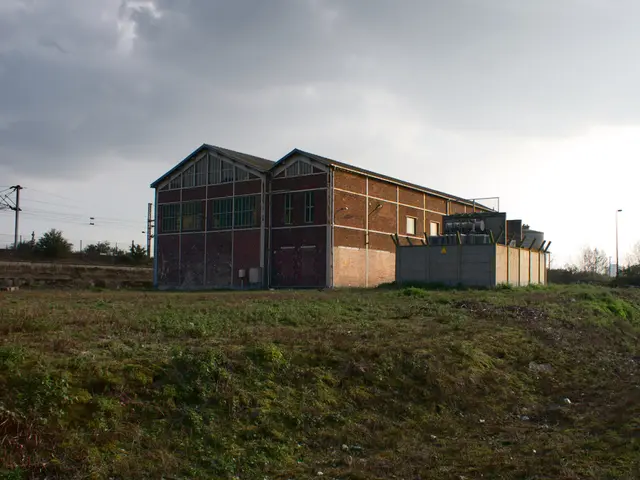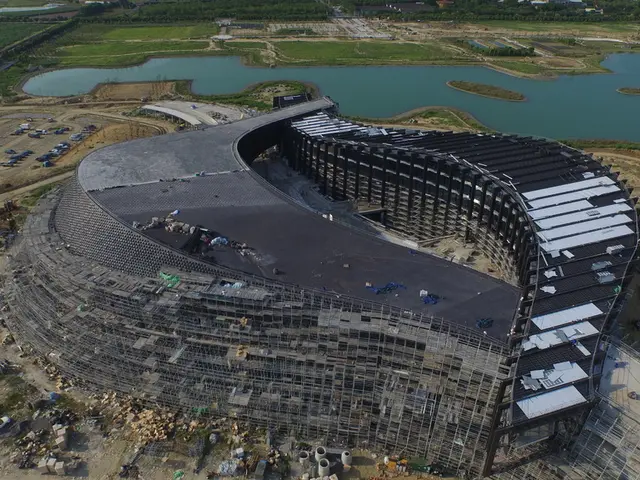UK Construction Industry Advancements | July 2025 Overview of Progress in Building Sector
The UK government has unveiled a comprehensive 10-year Infrastructure Strategy, marking a significant shift in the nation's approach to energy and infrastructure development. The strategy, which positions energy infrastructure at the core of national economic growth, decarbonisation, and resilience efforts, is expected to have a far-reaching impact on the energy sector.
One of the key aspects of the strategy is the commitment to invest a minimum of £725 billion in infrastructure over the next decade, with a strong emphasis on clean energy technologies and nuclear power. This investment aims to help the UK meet its 2030 net zero goals.
To coordinate infrastructure planning and delivery more effectively, the National Infrastructure and Service Transformation Authority will be established. This new institutional framework is designed to create a more streamlined, clear, and aligned process for energy projects, reducing friction and uncertainty for developers and operators.
The strategy also introduces new exemptions and enhanced reliefs on electricity costs and network charges for energy-intensive industries, such as automotive, aerospace, and chemicals. This move is intended to lower operational costs and promote competitiveness in these sectors.
Digitalisation, smart data, and flexibility technologies like smart EV charging and electricity storage are being emphasised to modernise and stabilise the energy system. The government plans a Clean Flexibility Roadmap and smart data initiatives that will empower consumers.
To speed up electricity grid connections, a new Connections Accelerator Service and regulatory reforms have been introduced. These measures aim to address current bottlenecks that delay energy projects and investment critical to the net zero transition.
Energy is being promoted as a driver of regional economic growth, job creation, and productivity, with energy projects intertwined with wider industrial and regional development priorities.
The Infrastructure Strategy represents a strategic inflection point for the UK energy sector, fostering long-term investment, regulatory clarity, decarbonisation, enhanced industrial competitiveness, and modernisation of electricity infrastructure to meet climate and economic objectives.
Meanwhile, the Data (Use and Access) Act has become law, marking the first changes to UK GDPR. The UK and EU GDPR for HR is available for Summer 2025. Other developments include the deferral of guaranteed hours and 'day one' employment rights for UK agency workers to 2027, and discussions on the implementation of the Employment Rights Bill, the new corporate offence of failure to prevent fraud, and managing the risk of psychiatric injury to employees in disciplinary proceedings at The Employment Law Coffee Break.
The UK government is also moving forward with plans for a wider series of nature markets in environmental marketplaces and is accelerating onshore wind energy. The draft Planning and Infrastructure Bill is progressing through Parliament, and the Future of Infrastructure 2025 event is scheduled for September 24, 2025.
Sources: [1][2][3][4]
[1] HM Government (2021). UK Infrastructure Strategy. gov.uk [2] HM Government (2021). Net Zero Strategy: Build Back Greener. gov.uk [3] HM Government (2021). Industrial Energy Transformation Fund. gov.uk [4] HM Government (2021). Accelerating Electricity Network Innovation. gov.uk
Employment law discussions are ongoing at The Employment Law Coffee Break, focusing on the implementation of the Employment Rights Bill, the new corporate offence of failure to prevent fraud, and managing the risk of psychiatric injury to employees. The Infrastructure Strategy also includes consideration of finance, as the UK government plans to invest a significant amount in infrastructure, particularly in clean energy technologies and real-estate development, which could potentially present opportunities for investing.




